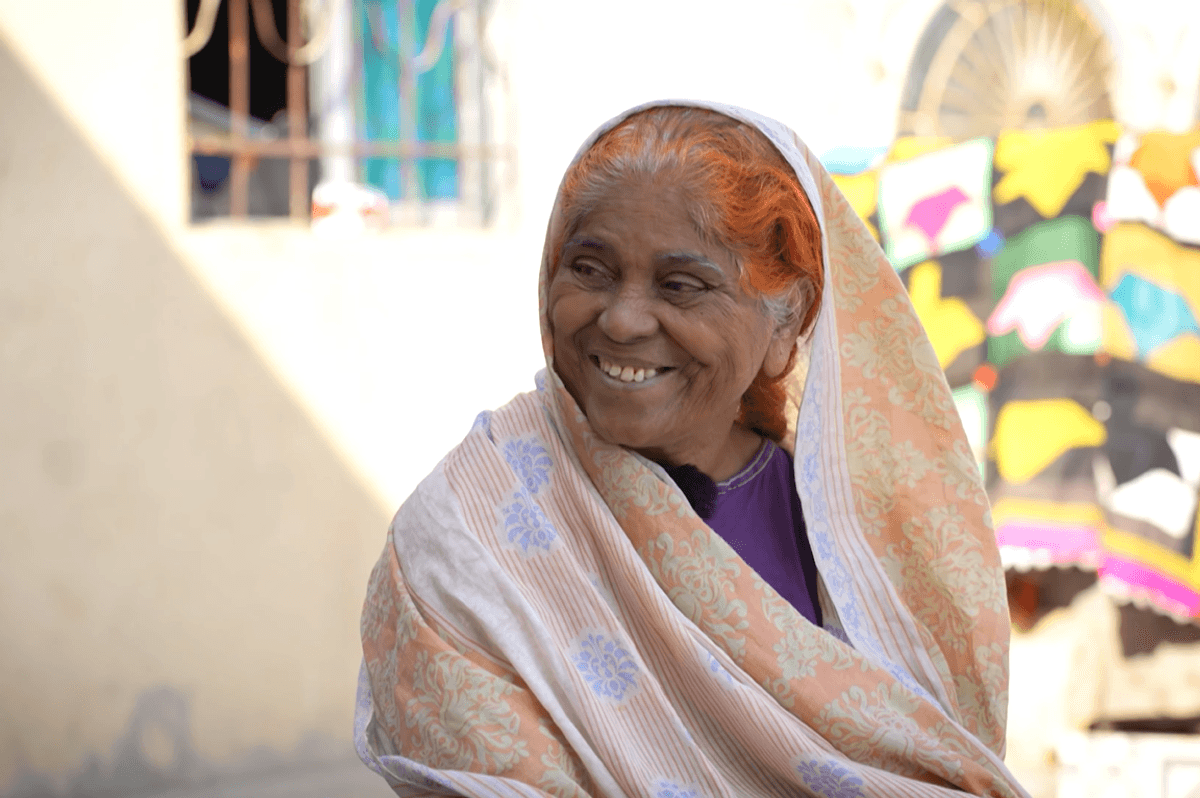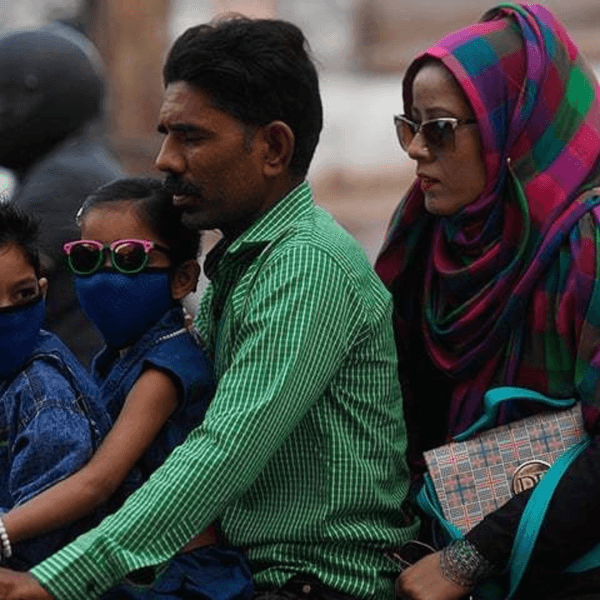Hamida Bano: A tale of survival, separation, and reunion across borders
Bano’s 22-year ordeal ends as she reunites with her family in Mumbai, a story of hope, resilience, and humanity
Shumaila Khan
Chief Correspondent
Shumaila Khan, a multimedia journalist and Chevening SAJP fellow with 17+ years of experience, is known for her acclaimed work with BBC Urdu, BBC Indian Languages, DW English, Dainik Bhaskar, UNICEF, and Internews.

Hamida Bano, 70, smiles during an interview with Nukta in Pakistan shortly before her December 2024 return to Mumbai, India, after spending 22 years away from her family due to human trafficking.
Nukta
After spending 22 years in anonymity in Pakistan, Hamida Bano, a 70-year-old Indian citizen, has finally reunited with her family in Mumbai. Greeted by her overjoyed loved ones, she could barely contain her tears as she stepped onto Indian soil.
For 22 long years, she lived in Pakistan, trapped by circumstances she neither chose nor foresaw. Her return is not just a story of personal resilience but a testament to the power of hope and humanity.
Hamida’s journey to Pakistan began in 2002 when she became a victim of human trafficking. A widowed mother of four from Mumbai, she was seeking employment abroad to support her family. Trusting a recruitment agent who promised her a job in Dubai, she paid INR 20,000, only to be deceived and transported to Karachi instead.
Hamida recalls her confusion when her flight landed in Karachi instead of Dubai. Alongside four other women, she was smuggled through the airport and taken to a house in Hyderabad, Pakistan, where they were detained for three months. Seizing an opportunity, Hamida and another woman managed to escape and found their way to Karachi.
In Karachi, Hamida married a street vendor for security and shelter. Her husband, who passed away during the COVID-19 pandemic, was supportive and never troubled her. After his death, she lived with her stepchildren, who, despite financial struggles, cared for her as much as they could.
The community in Manghopir, the neighborhood in Karachi where she spent much of her life, played a significant role in her survival. Her neighbors often brought her meals and offered support, ensuring she never felt entirely alone. But even amid their kindness, Hamida longed for her family in India.
The path to reunion
Hamida’s story began to unfold in 2022, thanks to Waliullah Maroof, a young imam and social media activist in Karachi. Known for reconnecting separated families, Maroof hesitated to take on Hamida’s case due to the political tension between India and Pakistan. However, at his mother’s insistence, he recorded her story and shared it on YouTube.
The video was discovered by Indian journalist Khalfan Shaikh, who amplified her story, leading to widespread attention. Hamida’s children, who had lost all contact with her for two decades, finally learned of her whereabouts.
Despite the renewed connection, bureaucratic hurdles delayed her return. The Indian Ministry of External Affairs, working through the Indian High Commission in Islamabad, verified her citizenship using documents such as her daughters’ Aadhaar cards, bank documents, pictures, and her family’s ration card. Meanwhile, Pakistan’s Ministry of Foreign Affairs confirmed she was not a Pakistani citizen.
Crossing borders and reclaiming life
After years of delays, Hamida’s departure was finalized. On December 16, 2024, she crossed the border into India, marking the end of her 22-year ordeal. Her return was met with a grand reception from her family and well-wishers in Mumbai.
Hamida expressed gratitude to both governments for their efforts in facilitating her return. Pakistan waived hefty fines for her undocumented stay, while India expedited her citizenship verification.
Waliullah Maroof, who played a pivotal role in her return, remains humble. “This was never about politics. It was about reuniting a mother with her children. Humanity won.”
A triumph of humanity
Hamida’s story is a reminder of the resilience of the human spirit. Her gratitude extended to the neighbors in Karachi who supported her through her darkest days, providing food and companionship. She also credited Waliullah Maroof, whose efforts proved instrumental in reconnecting her with her family.
Speaking to Nukta, Hamida reflected on her life, saying, “My story could be a movie—it has tears, laughter, and an ultimate triumph.”
Her journey highlights the importance of cross-border cooperation and the power of community-driven efforts to reunite families torn apart by circumstances.
Hamida’s story is not just hers—it’s a reflection of the countless lives affected by human trafficking, displacement, and strained international relations. It is also a testament to the kindness of strangers, the determination of family, and the power of social media.






Comments
See what people are discussing